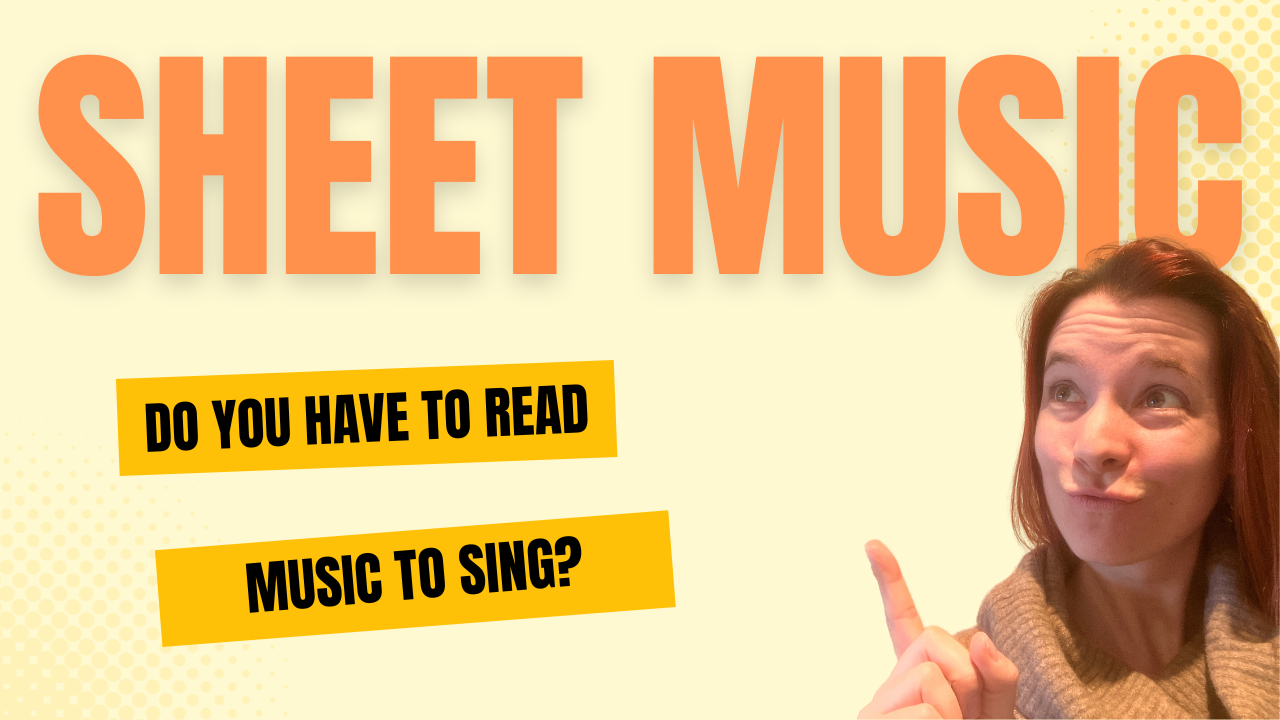Reading Music: a Necessity for Learning To Sing?
Nov 09, 2023
This week, we will delve into an intriguing topic: the necessity of reading music as a singer. Is it a prerequisite for honing your vocal skills, or can you progress without it? Let's embark on this musical journey together and explore the answer.
Today, our focus is on the ability to read music. Many aspiring singers wonder whether learning to read music is a prerequisite for becoming a skilled vocalist. Does one need to know their A, B, C, D, E, F, G on the staff before embarking on a singing journey? It's a common question, and I understand where it comes from. After all, music is often likened to a language, and mastering a language requires learning it first. But does this concept hold for singing?
In Belgium, my home country, and possibly some other places, there's a traditional path for musicians and singers to follow. It involves learning music theory, solfege, and various musical concepts before diving into singing or playing instruments. So, the need to read music before singing is deeply ingrained in our culture. However, the truth is that it's not a strict requirement for vocal training.
As a singer, you don't necessarily need to read music to train your voice effectively. What matters most is training your vocal muscles and refining your internal hearing. Musicians who play instruments like keys or guitars benefit from knowing chords, clefs, tempo, and other musical elements because sheet music provides specific instructions for playing a song. As vocalists, we can rely on our ears to grasp the nuances of a piece, making sheet music less of a necessity.
When you're singing covers or performing songs originally sung by others, you can listen to the original artist's rendition and use your ear to capture the melody, rhythm, and overall musical direction. You don't have to read the sheet music to understand and replicate these elements.
That being said, reading music can be advantageous, especially if you plan to collaborate with other musicians. If you're part of a band, a choir, or an a cappella group, it's vital to speak the same musical language. This way, when someone says, "We're in the key of G," you can quickly grasp the musical context and make informed decisions about your vocal performance.
So, in a nutshell, do you need to read sheet music to sing? No, it's not a prerequisite. Vocal training revolves around developing your vocal muscles and refining your inner musical ear. However, reading music can be incredibly helpful when collaborating with other musicians.
If you focus solely on learning to read music before working on your vocal skills, you might lose valuable time and passion. Our goal is to help you follow your singing dreams from day one. If you need to understand chords or read sheet music in the future, you can add that to your practice regimen.
To support your vocal journey, I'm offering a free training session called "DISCOVER THE MOST POWERFUL VOCAL TECHNIQUE." This technique is crucial for singing with freedom and nailing those high and low notes. You can sign up for this training via this link: https://www.singinginsiders.com/30-days-to-better-singing-workshop-opt-in-page
In conclusion, reading music is not a must-have for singers, but it can be a valuable skill, especially for collaborations. Your primary focus should always be on vocal training. If you have any questions or need further clarification on this topic, please comment below. I'm here to assist you every step of the way.
I hope to see you there and am eager to hear about your progress. Remember, keep practicing, keep singing, and don't hesitate to reach out if you have any questions or need guidance.
Thank you for being so supportive, and I can't wait to catch you here again soon. Bye for now! 🎵
Sing High Notes Easily Without Tension Or Hoarseness
Download the Mix Voice Vocal Workout with sing-a-long exercises to train your voice for FREE 👇🏻
We hate SPAM. We will never sell your information, for any reason.

